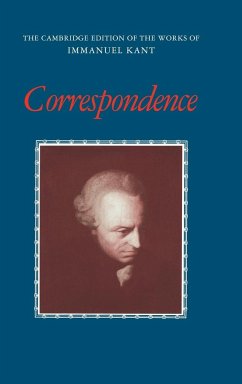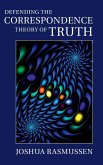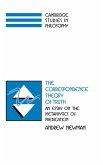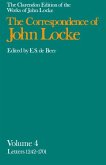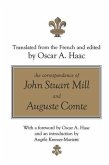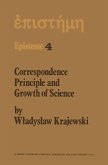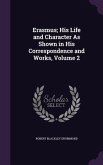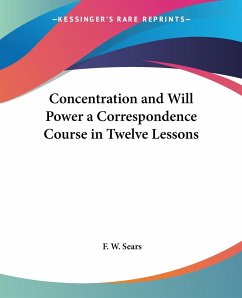- Gebundenes Buch
- Merkliste
- Auf die Merkliste
- Bewerten Bewerten
- Teilen
- Produkt teilen
- Produkterinnerung
- Produkterinnerung
This is a most complete English edition of Kant's correspondence.
Andere Kunden interessierten sich auch für
![Defending the Correspondence Theory of Truth Defending the Correspondence Theory of Truth]() Joshua RasmussenDefending the Correspondence Theory of Truth95,99 €
Joshua RasmussenDefending the Correspondence Theory of Truth95,99 €![The Correspondence Theory of Truth The Correspondence Theory of Truth]() Andrew NewmanThe Correspondence Theory of Truth102,99 €
Andrew NewmanThe Correspondence Theory of Truth102,99 €![The Correspondence of John Locke The Correspondence of John Locke]() John LockeThe Correspondence of John Locke163,99 €
John LockeThe Correspondence of John Locke163,99 €![The Correspondence of John Stuart Mill and Auguste Comte The Correspondence of John Stuart Mill and Auguste Comte]() Oscar HaacThe Correspondence of John Stuart Mill and Auguste Comte187,99 €
Oscar HaacThe Correspondence of John Stuart Mill and Auguste Comte187,99 €![Correspondence Principle and Growth of Science Correspondence Principle and Growth of Science]() W. KrajewskiCorrespondence Principle and Growth of Science39,99 €
W. KrajewskiCorrespondence Principle and Growth of Science39,99 €![Erasmus; His Life and Character As Shown in His Correspondence and Works, Volume 2 Erasmus; His Life and Character As Shown in His Correspondence and Works, Volume 2]() Robert Blackley DrummondErasmus; His Life and Character As Shown in His Correspondence and Works, Volume 237,99 €
Robert Blackley DrummondErasmus; His Life and Character As Shown in His Correspondence and Works, Volume 237,99 €![Concentration and Will Power a Correspondence Course in Twelve Lessons Concentration and Will Power a Correspondence Course in Twelve Lessons]() F. W. SearsConcentration and Will Power a Correspondence Course in Twelve Lessons25,99 €
F. W. SearsConcentration and Will Power a Correspondence Course in Twelve Lessons25,99 €-
-
-
Produktdetails
- Produktdetails
- Verlag: Cambridge University Press
- Seitenzahl: 660
- Erscheinungstermin: 5. Februar 2016
- Englisch
- Abmessung: 240mm x 161mm x 40mm
- Gewicht: 1145g
- ISBN-13: 9780521354011
- ISBN-10: 0521354013
- Artikelnr.: 21271974
- Herstellerkennzeichnung
- Libri GmbH
- Europaallee 1
- 36244 Bad Hersfeld
- gpsr@libri.de
- Verlag: Cambridge University Press
- Seitenzahl: 660
- Erscheinungstermin: 5. Februar 2016
- Englisch
- Abmessung: 240mm x 161mm x 40mm
- Gewicht: 1145g
- ISBN-13: 9780521354011
- ISBN-10: 0521354013
- Artikelnr.: 21271974
- Herstellerkennzeichnung
- Libri GmbH
- Europaallee 1
- 36244 Bad Hersfeld
- gpsr@libri.de
Immanuel Kant ( 22 April 1724 - 12 February 1804) was an influential German philosopher[23] in the Age of Enlightenment. In his doctrine of transcendental idealism, he argued that space, time, and causation are mere sensibilities; "things-in-themselves" exist, but their nature is unknowable.[24][25] In his view, the mind shapes and structures experience, with all human experience sharing certain structural features. In one of his major works, the Critique of Pure Reason (1781; second edition 1787),[26] he drew a parallel to the Copernican revolution in his proposition that worldly objects can be intuited a priori ('beforehand'), and that intuition is therefore independent from objective reality.[b] Kant believed that reason is also the source of morality, and that aesthetics arise from a faculty of disinterested judgment. Kant's views continue to have a major influence on contemporary philosophy, especially the fields of epistemology, ethics, political theory, and post-modern aesthetics. He attempted to explain the relationship between reason and human experience and to move beyond the failures of traditional philosophy and metaphysics. He wanted to put an end to what he saw as an era of futile and speculative theories of human experience, while resisting the skepticism of thinkers such as David Hume. He regarded himself as showing the way past the impasse between rationalists and empiricists,[28] and is widely held to have synthesized both traditions in his thought.[29] Kant was an exponent of the idea that perpetual peace could be secured through universal democracy and international cooperation. He believed that this would be the eventual outcome of universal history, although it is not rationally planned.[30] The nature of Kant's religious ideas continues to be the subject of philosophical dispute, with viewpoints ranging from the impression that he was an initial advocate of atheism who at some point developed an ontological argument for God, to more critical treatments epitomized by Schopenhauer, who criticized the imperative form of Kantian ethics as "theological morals" and the "Mosaic Decalogue in disguise",[31] and Nietzsche, who claimed that Kant had "theologian blood"[32] and was merely a sophisticated apologist for traditional Christian faith
General editor's preface
Acknowledgements
Introduction
Part I. Letters before 1770
Part II. Letters 1770-80
Part III. Letters 1781-9
Part IV. Letters 1790-4
Part V. Letters 1795-1800
Public Declaration concerning Fichte's Wissenschaftslehre, August 7, 1799
Biographical sketches
Glossary
Index of persons.
Acknowledgements
Introduction
Part I. Letters before 1770
Part II. Letters 1770-80
Part III. Letters 1781-9
Part IV. Letters 1790-4
Part V. Letters 1795-1800
Public Declaration concerning Fichte's Wissenschaftslehre, August 7, 1799
Biographical sketches
Glossary
Index of persons.
General editor's preface
Acknowledgements
Introduction
Part I. Letters before 1770
Part II. Letters 1770-80
Part III. Letters 1781-9
Part IV. Letters 1790-4
Part V. Letters 1795-1800
Public Declaration concerning Fichte's Wissenschaftslehre, August 7, 1799
Biographical sketches
Glossary
Index of persons.
Acknowledgements
Introduction
Part I. Letters before 1770
Part II. Letters 1770-80
Part III. Letters 1781-9
Part IV. Letters 1790-4
Part V. Letters 1795-1800
Public Declaration concerning Fichte's Wissenschaftslehre, August 7, 1799
Biographical sketches
Glossary
Index of persons.

